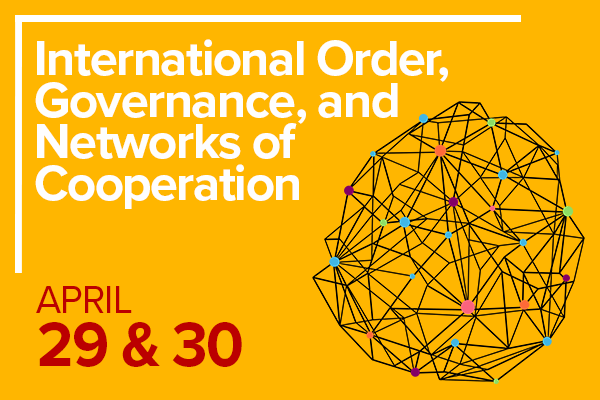
Conference Overview
The goal of the conference is to explore synergies between the theoretical literatures on international order and global governance, and the more recent network literature on cooperation. Interest in the subject of international order and global governance has surged in recent years as threats to the liberal international order became manifest. At the same time, a growing literature on political networks has made new progress on old questions of international cooperation and institutions. These literatures approach a common goal of understanding large-scale cooperation in the international system, but from very different perspectives. This conference will explore the question of how they can usefully inform one another. Attendees will discuss their own, and one another's, research on order and cooperation, with an eye toward finding synergies and building toward synthesis.
This conference will be held in-person at 320 Pomerene Hall. Lunch and refreshments will be provided for registered participants. A virtual option is available for those interested but not able to attend in person.
